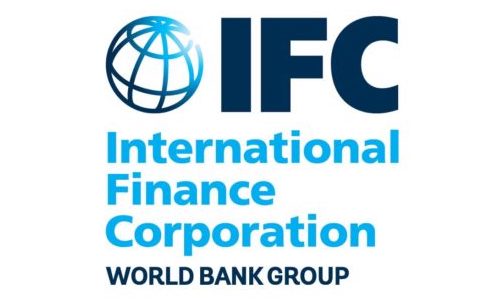Accountability Counsel Submits Joint Letter to IFC/MIGA Executive Directors Seeking Transparency and Consultations on Key External Review

Yesterday, Accountability Counsel and 40 global partners submitted a joint letter to the Executive Directors of the International Finance Corporation (IFC) and Multilateral Investment Guarantee Agency (MIGA), requesting the immediate disclosure of the long-awaited report of the external review of the IFC and MIGA’s accountability framework and for a subsequent consultation process.
In the wake of several harmful projects that have exposed challenges with the institutional approach to accountability, the Executive Directors of the IFC/MIGA launched a review of its environmental and social accountability framework in 2019. The Executive Directors charged a review team composed of external experts to evaluate the accountability ecosystem, including its accountability office, the Compliance Advisor Ombudsman, and make recommendations for its improvement. The external review team submitted its report containing recommendations to Board members in June 2020, and it has yet to be disclosed.
Disclosure of and consultations on the substance of the report is critical so that the very people who might engage with the IFC/MIGA’s accountability office — namely those impacted by the institution’s projects — can help shape the institution’s policies. After disclosure of the report, the Board should set a process for implementation of the recommendations that includes consultations with stakeholders. Consultations could include: (1) a period for written comment; (2) a number of calls with stakeholders to discuss comments; (3) a discussion during the 2020 Annual Meeting; and (4) a response from the IFC/MIGA and CAO to comments received.
Read our full letter below and see versions in French and Spanish here.
———————————–
Board of Executive Directors
World Bank Group
1818 H Street, NW
Washington, D.C. 20433
Via Electronic Mail
21 July 2020
Re: Disclosure of the Report of the External Review of IFC/MIGA E&S Accountability, including CAO’s Role and Effectiveness
We, the undersigned organizations, write to request the immediate disclosure of the Report of the External Review of IFC/MIGA E&S Accountability, including CAO’s Role and Effectiveness.
We view IFC’s accountability framework, and in particular the CAO, as critical to achieving the IFC’s development goals, vital for ensuring development that respects human rights and the environment, and essential for IFC/MIGA’s social license to finance activities in local communities. The accountability framework at IFC was put in place after years of advocacy by civil society in response to serious social and environmental harm that had been caused by IFC investments. We welcome the review of the framework and ongoing engagement with both IFC and CAO on how it can be improved.
In order to have meaningful engagement with all stakeholders on any recommendations or proposals that result from the External Review, the Review Team’s final report should be immediately disclosed and a consultation process should be planned that invites views from civil society on whether and how to make changes that further the effectiveness of the IFC and MIGA’s accountability framework. We trust that this consultation process will adhere to the World Bank Group’s well known Consultation Guidelines, which recognize that an effective consultation must adhere to the principles of openness, access to information, transparency, accountability, visibility, and accessibility.
In this regard, we commend the World Bank Group for its recent commitments with respect to disclosure of the External Review Team’s report and collaborative engagement in the ongoing review to ensure a robust and transparent process.
Thank you for your attention, and we sincerely look forward to our meaningful engagement.
Abibiman Foundation – Ghana
AbibiNsroma Foundation (ANF) – Ghana
Accountability Counsel – USA
Action Paysanne contre la Faim – Democratic Republic of Congo
African Coalition for Corporates Accountability – South Africa
Alliance for Empowering Rural Communities (AERC-Ghana) – Ghana
Arab Watch Coalition – MENA Region, USA
Bank Information Center (BIC) – USA
Both ENDS – Netherlands
Buliisa Initiative for Rural Development Organisation (BIRUDO) – Uganda
Center for International Environmental Law (CIEL) – USA
Centre de Recherche sur la Démocratie, l’Environnement et les droits de l’homme (CREDDHO) – Democratic Republic of Congo
Centre for Research on Multinational Corporations (SOMO) – The Netherlands
Coalition des Organisations de la Société Civile pour le Suivi des Réformes et de l’Action Publique (CORAP) – Congo-Kinshasa
Conseil Régional des Organisations Non Gouvernementales de Développement – Democratic Republic of Congo
David Hunter, Peregrine Environmental Consultants, LLC – USA
Forest Peoples Programme – United Kingdom, The Netherlands
Foundations for the Development of Sustainable Policies (FUDEPS) – Argentina
Green Advocates International – Liberia
Groupe de Recherche et de Plaidoyer sur les Industries Extractives (GRPIE) – Côte d’Ivoire
Gobi Soil NGO – Mongolia
Horn Afrik News Agency for Human Rights – Somalia, Ethiopia, Djibouti, Eritrea
Inclusive Development International – USA
International Accountability Project – Global
International Trade Union Confederation/Global Unions Washington Office – USA
Instituto del Tercer Mundo (ITeM)/ Social Watch – Uruguay
Mazingira Network, Tanzania (MANET) – Tanzania
Narasha Community Development Group (NCDG) – Kenya
Network Movement for Justice and Development – Sierra Leone
Oyu Tolgoi Watch – Mongolia
Oxfam International – Global
Peace Point Development Foundation (PPDF) – Nigeria
Public Interest Law Center, Chad – Chad
Recourse – Netherlands
Rights & Accountability in Development (RAID) – United Kingdom
Rivers Without Boundaries Coalition – Mongolia
SUHODE Foundation – Tanzania
The Hunger Project – USA
Urgewald e.V. – Germany
Witness Radio, Uganda – Uganda
Youth For Environment Education And Development Foundation (YFEED Foundation) – Nepal

